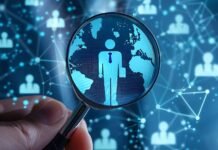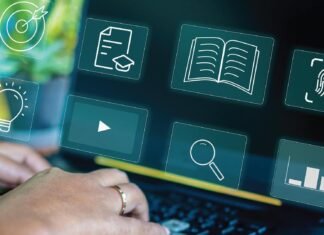Human resources is undergoing profound changes, fueled by the rise of artificial intelligence (AI) and agile methodologies. These advancements are transforming HR from a primarily administrative function into a strategic powerhouse. By integrating AI and adopting agile approaches, HR teams can streamline operations, make data-driven decisions and enhance the employee experience. The result? A more dynamic and responsive HR function that aligns with the fast-paced nature of modern business.
Automating Routine Tasks to Enhance Efficiency
HR professionals often grapple with time-consuming administrative tasks, limiting their ability to focus on strategic initiatives. AI-powered tools are changing that by automating functions such as résumé screening, background checks and record management. This enhances efficiency and allows HR teams to invest more time in cultivating company culture, employee engagement and leadership programs.
According to the Society for Human Resource Management (SHRM), 64% of organizations using AI in HR have applied it to recruitment and hiring processes. These applications speed up hiring timelines and let HR focus on human-centric tasks requiring emotional intelligence and strategic thinking.
Leveraging AI for Data-Driven Decision-Making
AI also empowers HR professionals with insights for smarter decision-making. It predicts employee attrition, identifies engagement trends and highlights areas for improvement by analyzing workforce data. For example, AI detects patterns in absenteeism linked to management practices, allowing HR to intervene proactively.
A survey from Aon found 400 HR professionals saying they believe AI can provide the most value in people analytics, talent recruitment and learning and development. However, 60% of business leaders admit their company lacks a clear AI implementation strategy, according to the Academy to Innovate HR (AIHR). To close this gap, HR leaders must advocate for AI-driven strategies that align with business objectives while ensuring teams are equipped to leverage these insights effectively.
Personalizing Talent Management and Employee Development
AI’s ability to personalize employee experiences is one of its most promising applications. AI-driven learning platforms offer tailored career recommendations based on an employee’s skills and aspirations. This fosters engagement and helps organizations retain talent by showing a commitment to professional growth. SHRM’s report found 43% of organizations using AI in HR apply it to learning and development, reinforcing AI’s role in shaping career growth. Additionally, AI can also enhance hiring practices by making them more inclusive, generating job descriptions and analyzing recruitment patterns to identify barriers candidates might face.
Embracing Agile Methodologies for Greater Adaptability
Agile methodologies are revolutionizing HR by promoting adaptability and collaboration. Agile HR teams continuously reassess priorities, embrace improvements and respond swiftly to organizational needs. This approach fosters innovation and ensures HR remains aligned with business objectives in an ever-evolving environment.
When combined with an agile mindset, AI’s true impact is fully realized. This synergy enables HR teams to experiment with pilot programs, gather feedback, and refine policies, ensuring that HR initiatives stay relevant and effective.
Overcoming Barriers to AI Adoption in HR
Despite AI’s advantages, adoption in HR remains slow. Many HR teams have yet to integrate AI into their workflows, with key barriers including a lack of knowledge (42%) and concerns about AI maintaining the “human touch” in HR functions (40%), according to SHRM. Without a clear implementation strategy, HR professionals risk missing opportunities to enhance efficiency and drive strategic decision-making.
To accelerate adoption, HR leaders must take a proactive role in AI education, ensuring teams understand how to leverage AI-driven insights while maintaining a people-first approach. Establishing ethical governance frameworks and fostering cross-functional collaboration can also help bridge the gap between AI capabilities and real-world HR applications.
As HR continues to evolve, the synergy between AI and agile practices will shape its future. AI’s ability to automate, analyze and personalize allows HR professionals to focus on strategic initiatives that enhance workplace culture and employee satisfaction. Meanwhile, agile methodologies ensure HR remains responsive and adaptable in a rapidly changing business landscape.
While the transition may not be seamless, organizations that embrace both AI and agile practices will lead the way in HR innovation. In the coming years, AI won’t replace HR professionals—it will empower them to be more effective, data-driven and human-centric than ever before.
Explore Hrtech Articles for the latest Tech Trends in Human Resources Technology












